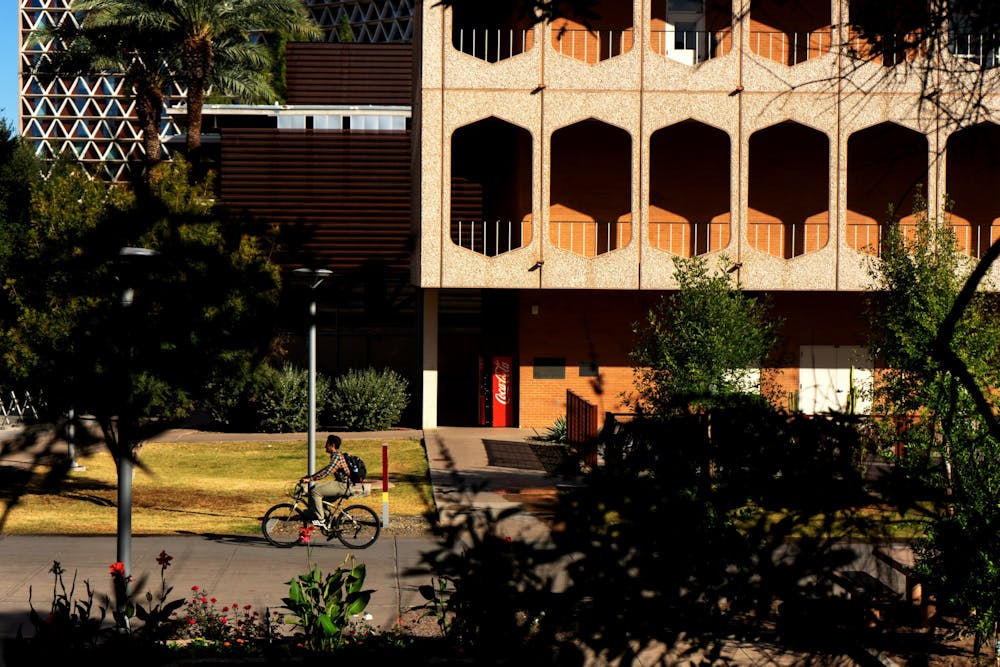The new ENERGIZE program launching at ASU is helping to encourage underrepresented students in the Department of Psychology to gain access to laboratory studies and graduate school opportunities.
Professors in ASU's psychology department noticed there is a low number of ethnic minority and first-generation students pursuing graduate degrees in the department, and they are working to raise this number by getting students on the science track earlier by encouraging participation in research laboratories.
ASU's enrollment data showed that in the class of 2018, minorities made up 48% of students pursuing an undergraduate psychology degree but only 29% of students pursuing a graduate degree.
Faculty members realized that culturally diverse students are choosing not to further their psychological education past their undergraduate degree for a number of reasons pertaining to their backgrounds and mindsets.
The ENERGIZE program is working to understand these reasons and guide underrepresented students to a variety of research and psychology pathways that will ultimately lead them to careers.
“Graduate school is not something that is thought of where I come from,” said Christopher Richardson, a senior studying psychology. “When I started to think about going to college, I didn’t even know the difference between undergraduate and graduate school just because for a lot of underrepresented families, graduate school isn’t even talked about.”
Richardson grew up on the south side of Los Angeles with his mother, father and younger brother. After losing his father to cancer when he was 12, he was raised in a single-parent household.
Not having a father figure in his life was very difficult, Richardson said, and he and his family struggled financially and emotionally.
“Growing up I had a lot of problems not having a father figure," Richardson said. "As I got older, I found it easier to focus on other people’s problems than to focus on my own issues, and this is why I started wanting to study psychology. I literally saw school as a way out."
Like many of the culturally diverse students at ASU, Richardson is a first-generation student and faces a lot of pressure.
Arthur Glenberg, a psychology professor at ASU, started the concept of ENERGIZE with students like Richardson in mind.
Glenberg said he saw that a large population of underrepresented students are not advancing in their academic careers even though they have the intellectual capability to do so.
“I am a cognitive psychologist, and I’ve been here at ASU for 12 years. And the 12 years I have been here there have been zero black graduate students in cognitive psychology and that just says that there is something wrong here," Glenberg said. "Black students are generally underrepresented in sciences, but nonetheless someone has to try to break that cycle."
In 2017, 4% of active psychologists identified as Black/African American according to the report, "Demographics of the U.S. Psychology Workforce," from the American Psychological Association. The same report stated that 85% of active psychologists in 2017 identified as white.
Glenberg said underrepresented students are not only wanted but also needed and appreciated in the psychology department.
"Psychology is the study of the brain and studies cannot progress much if they continue to be interpreted and controlled by a similar population," Glenberg said. "Diversity is needed for (the psychology department) to grow and prosper."
Glenberg said a group of about 13 professors in the department are involved, and they began advertising the program on Sept. 24 in classrooms.
Since then, 18 students have submitted applications for the program.
While there are no regularly scheduled meetings planned, Glenberg said students in the program will meet with individual professors in private meetings or labs about once a week.
Amanda Ryan, an academic success specialist for the ASU psychology department, said many underrepresented students can be discouraged to advance scholastically because of academic preparedness or financial issues.
Ryan said the goal of ENERGIZE is to “provide one-on-one mentorship to underrepresented students by breaking down the process into smaller pieces.”
The first step in this is to get students more experience in scientific psychology by getting them into different lab studies, Ryan and Glenberg said. Connecting students in the program with representatives of labs they're interested in is something Ryan has already begun, she said.
"Everyone deserves the opportunity to succeed, but some just don’t have the means to make it work," Richardson said. "I want to see more people of color prospering and enhancing the psychology field."
Glenberg said a long term goal of the program is to eventually get some of the students onto the ASU psychology faculty.
“I think this program could offer people help and a new door to open way more opportunities from what their career would be to what it can be," Richardson said. "I think it’s really great that ASU cares enough to identify the problem, notice it and want to do something about it. That speaks words for the University as a whole."
Reach the reporter at erichbur@asu.edu and follow @RichburgEmma on Twitter.
Like The State Press on Facebook and follow @statepress on Twitter.




